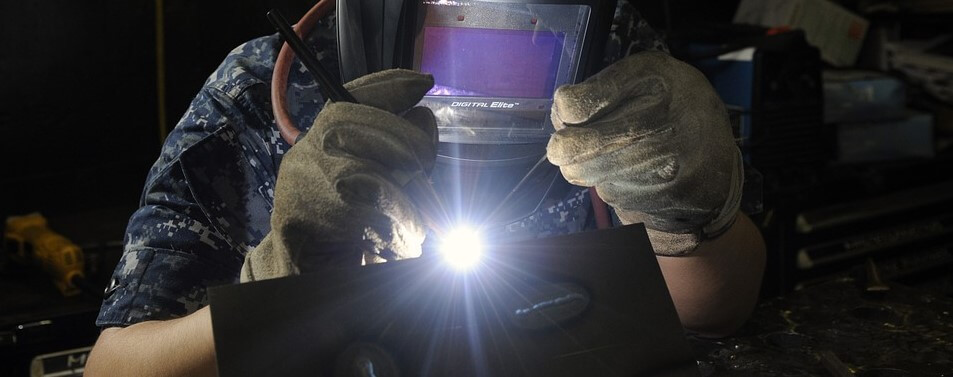The welding field is a profession that carries much more risks than others. Exposed to extreme heats and powerful equipment’s daily, its vitally important that personal protective equipment (PPE) is taken seriously. Personal protective equipment should be the most thought out step before starting any weld process, ensuring you are safe every step of the way. Here is a guide on the equipment you should be using and how effective it is depending on where it is used.
Eyes and Face
The eyes and face are one of the most exposed areas on the body during welding with risks including flying debris, particles, sparks, intense lights and radiation. Making sure you are well protected around the face is highly important. A welding helmet is a very common form of PPE, and helps shield the face from any of the sparks or other risks involved. Commonly made from Superglass plus, a material formulated for light weight and strength. Comfortable headgear is an essential, whilst providing everything from safety to impact resistance. If a welding helmet is not available, goggles will also help protect the eyes from sparks and intense lighting.
Lungs
Respirators help protect the lungs from the fumes and oxides associated with welding. Acting as a mask for the mouth, they help filter the air you breathe in.
Exposed skin
Exposed skin near a weld can lead to harsh burns from heat, fires and radiation. Wearing fire resistant clothing will help protect the skin from the extreme heats, particularly focus on hands, feet and the head – these are the most likely to be exposed to heat. Fire resistant aprons are also very commonly used in the welding industry.
Feet and Hands
As well as fire resistant clothing for the hands and feet, they also require extra protection from various things. Electric shock, heat, burns and fires are all risks that may affect your hands and feet. The best personal protective equipment for these areas will be boots and gloves. Rubber-souled gloves with steel provide the most protection and are what’s preferred by welders. Alternatively, insulated gloves are also favoured due to the heat resistant properties.
Ears
In a welding environment there can be many loud noises causes by machinery and equipment. Ear plugs decrease the amount of noise reaching the ear by blocking the path. If you take part in welding activities often, its important to protect your hearing. Although this may not affect you now, preventing hearing loss now is the safest thing to do.
For more protection, ear muffs may be used instead. Ear muffs have fire resistant properties, protecting from sparks of splatter that may direct towards the ear. Rather than ear plugs, it means there is more protection around the ear – as well as protecting against loud noises.
